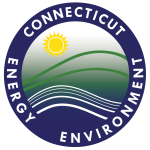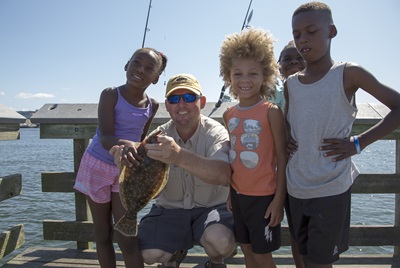Connecticut Aquatic Resources Education (CARE)
Come Fish With CARE! The CT Department of Energy and Environmental Protections (DEEP) Fisheries Division – Connecticut Aquatic Resources Education (CARE) program has been teaching beginners about the wonders of fish and fishing since 1986! CARE is a science-based package of environmental, ecological, and fishing information. The CARE program offers a variety of “Learn to Fish” classes and events that are designed to increase fishing participation by showing how fun and easy fishing can be while also fostering an appreciation for the environment and our states natural resources.
State certified CARE Instructors pass along information and expertise they’ve gained while fishing in local waters for many years. Demonstrations and activities make learning fun for adults and kids alike. Most classes include a fishing trip to a local hotspot!
Courses, classes and events are held year-round. The links below provide class descriptions and you can click here for a list of upcoming CARE classes.
Introduction to Fishing Course: The very best class for beginners! We will cover the basics of fish and fishing. Spend time learning from experienced Instructors in our 2 hour classroom session then go on a fishing trip to a local waterbody. These classes are designed for adults as well as families with children ages 8 and older.
Specialized Fishing Classes: These courses are designed for those with some previous fishing experience or who have taken an Introduction to Fishing course. Specific topics will increase your fishing skills and knowledge. Class themes may include saltwater fishing, fly fishing, trout fishing, bass fishing, Catch it and Cook it, and Women’s Only.
Ice Fishing Classes: Learn all the basics of this fun, wintertime sport. We will cover safety, equipment, and ice fishing techniques in the classroom. Graduates will be invited to attend a hand-on ice fishing field trip. These classes are held in January and February.
Special Fishing Events: Mostly single-day events; they may include fishing festivals, fishing clinics, Free Fishing Day events, and No Child Left Inside® fishing days.
CARE Center Classes on Forster Pond: Field trips to our education center in Killingworth. Designed for students 6th grade and older, these courses include classroom lessons taught by teachers and CARE staff and conclude with an actual fishing field trip!
CARE volunteer Instructors teach fishing classes as a service to communities where they live and because they want to see the lifelong sport of fishing passed on to future generations! Over 2,100 CARE Instructors have donated in time the monetary equivalent of over $4.5 million! CARE Instructors have taught over 220,000 people since 1986, and continue to organize classes and events for thousands of families each year. If interested in becoming a volunteer CARE Instructor, check out our Instructor Resources Page.
The CARE program is funded through the Sport Fish Restoration (SFR) Act monies, which is a law that collects taxes on motor boat fuels, excise taxes on fishing equipment from manufacturers, and import duties on yachts and pleasure boats. These tax monies are deposited into a national trust fund administered by the U.S. Fish and Wildlife Service, who then awards grants to state fish and wildlife agencies so they can improve fishing in their state. SFR grants pay for up to 75 percent of project costs, while the state agency is obligated to pay 25 percent. CARE volunteer time is documented and used as in-kind match for the DEEP share of this SFR grant cost, enabling CARE to function with no state funding!
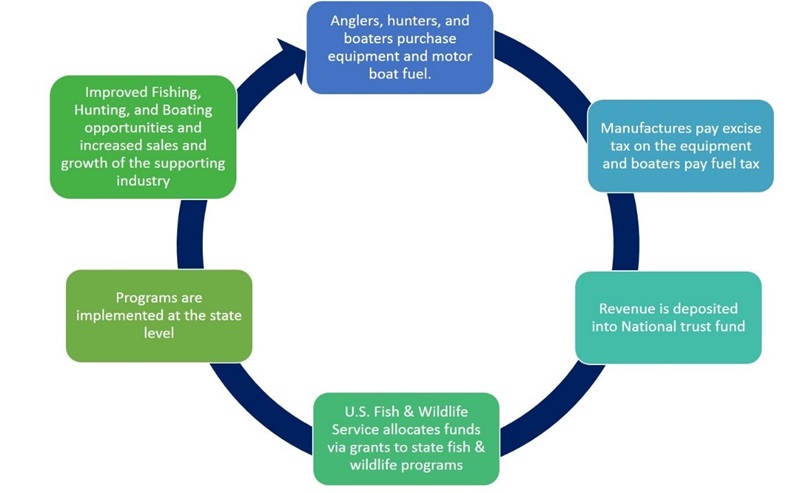
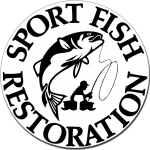
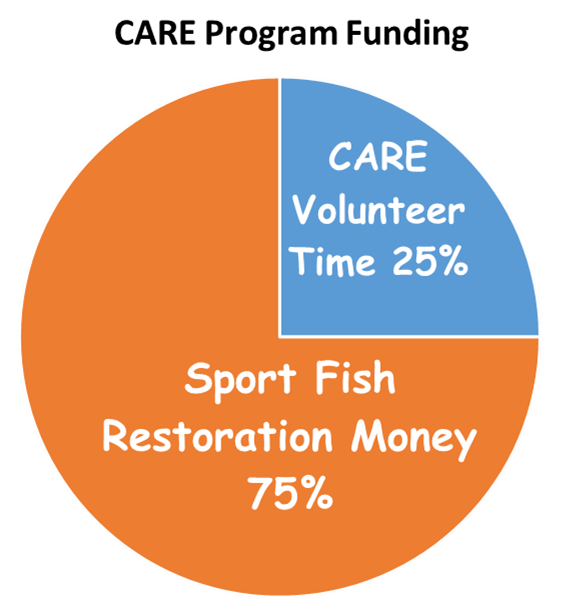

Content last updated January 2020

